Shopify Capital Q1 SMB Funding Soars
April 28, 2021 Shopify Capital posted monster figures on Wednesday, originating $308.6 million total in MCA and loans. Across the US, Canada, and the UK, Shopify saw a 90% increase from Q1 last year.
Shopify Capital posted monster figures on Wednesday, originating $308.6 million total in MCA and loans. Across the US, Canada, and the UK, Shopify saw a 90% increase from Q1 last year.
In total, Shopify Capital originated $794 million in 2020, and with a blistering first quarter, it may be on track to originate over a billion dollars this year.
“Shopify’s momentum continued into 2021 as digital commerce tailwinds remained strong and merchants took advantage of the range of capabilities offered by our platform,” Shopify CFO Amy Shapero said in an earnings statement. “We are focused on building a commerce operating system that will help shape the future of retail. Our merchant-first business model positions us to capture the massive opportunity presented by the growth of digital commerce, benefiting both our merchants and Shopify.”
Overall, total revenue for Q1 was $988.6 million, a 110% increase year over year. Nearly a third of the posted revenue was small business lending and MCA funding.
The Death of A Thousand Financial Companies
April 28, 2021Unfortunately, Deleting Your Business May Not Be An Option One Can Risk.
 In March 2021, deBanked revealed that 7.5% of DailyFunder’s user base that had existed in March 2020, was lost during the pandemic. DailyFunder, of course, is the most widely used forum for small business finance brokers and the statistic offered one of the most compelling insights into the damage inflicted on the industry.
In March 2021, deBanked revealed that 7.5% of DailyFunder’s user base that had existed in March 2020, was lost during the pandemic. DailyFunder, of course, is the most widely used forum for small business finance brokers and the statistic offered one of the most compelling insights into the damage inflicted on the industry.
A loss was defined as a user whose email address ceased to exist. It was either deleted or the domain name was not renewed. It was a startling revelation. And yet, in a sign of optimism, DailyFunder added more new users in that 12 month time frame than were lost.
And yet, is anything ever truly deleted in the digital age? And how did it come to pass that the owners of these companies believed deletion to be a preferable outcome to transference? Surely as a thousand brokerages closed, there would have been an eager buyer to scoop them up, even if the sales price was for pennies?
And so I arrived at a theory, that companies that simply wound up and disappeared rather than sold themselves off, probably left behind a digital footprint that still drew in prospective customers, a path that ultimately led nowhere. A competitor might rejoice at that outcome but it’s not exactly a net gain because that customer may have decided to go somewhere else or nowhere else instead. Someone else’s loss wasn’t their win. Even the customer was a net loser. That could be resolved, of course, if the competition simply acquired the expired domain names of their fallen competitors, something that could be reasonably achieved for the price of ten bucks through any domain name registrar.
Outside of the small business finance industry, such tactics are commonplace. One can simply go on Godaddy’s domain auctions to see the never-ending revolving door of expiring domains which are often ranked and priced on the basis of how much traffic they stand to generate, mainly because of the past owners’ efforts.
According to WhoIsHostingThis, 70% of all web domains fail to be renewed 1 year after they’re purchased. “[41% of these expired domains] go on to be snapped up and registered by other users to potentially benefit and profit from,” they say. And there is nothing controversial about this. This is simply a standard of the world wide web. Your fallen online business is recycled as someone else’s marketing tool.
Applying that math to the small business finance industry at hand, that would mean that of 1,000 brokerage failures, 41% of the expired domain names are going to be acquired by someone else or they already have been. And if the expired domain only costs $10 (and they’re not all this cheap), then theoretically one could acquire the web traffic of 410 failed brokers for roughly $4,000.
WHOA.
The realization led me to conduct a controlled experiment, one in which I would try to prove this theory for a deBanked story.
I bought roughly twenty expired domains, intentionally leaning toward older ones, domains that had been expired for 2-10 years rather than recent casualties of the pandemic. Once completed, I jotted down my hypothesis, that these domain names probably produced some level of prospective customer traffic.
 When my experiment concluded, I became alarmed, even sick, over what the results taught me. Deletion, I learned, is an outcome that no business, let alone a financial services company, can afford to surrender themselves to.
When my experiment concluded, I became alarmed, even sick, over what the results taught me. Deletion, I learned, is an outcome that no business, let alone a financial services company, can afford to surrender themselves to.
Here’s why:
Among the first steps taken was to create a “catch-all” email account on each domain so that if a former owner of a domain came along and tried to contact me, I would get it no matter which address they tried and that I would be able to tell them that I had acquired it accordingly and even tell them my theory!
No marketing or anything was done for any of the domains. I simply acquired them and let them sit stagnant. I did not resurrect whatever their old websites were. And yet, I received thousands and thousands of emails, none from what I could tell were from former owners.
It’s important to state that I did not use these accounts to actually do anything, but that these vulnerabilities came to light by virtue of monitoring the inbound emails these domains accrued.
Some domain names still had control of social media accounts like business facebook pages and twitter accounts. Someone could not only acquire your old domain, but use it to resurrect and use dormant social media accounts, including being able to view all past private correspondence on them. Yikes.
Some domain names were still attached to active bank accounts, credit card accounts, or financial services. Correspondence regarding these accounts was still being transmitted to them. When you delete a domain, you need to make sure its access is revoked from every account you have, especially bank accounts. Some received NSF notices or were being subject to debt collection efforts.
Every domain name was subscribed to newsletters or communities or some service in which one could use to learn personal information or business information about the previous owner.
 Unknown but likely is that some of these domains may have been the “lost password” email address of record for other accounts online, a particularly troubling thought.
Unknown but likely is that some of these domains may have been the “lost password” email address of record for other accounts online, a particularly troubling thought.
As the litany of stroke-inducing vulnerabilities piled up, then came live correspondence. Lenders wanted to know where to send a still-owed commission, a borrower was reaching out for customer service, old business partners were trying to rekindle past relationships.
Presumably such domains could give someone access to portals or databases where previous customer data was held. This implies that not only is the old domain owner at risk but that business vendors that had not disabled access to their systems for the defunct users could also be at risk from nefarious actors now in control of email addresses belonging to former customers.
A nefarious actor could surely dream up still more ways to carry out compromising acts. I disabled incoming email altogether for the domains pretty soon into my aforementioned discoveries so that emails to those domains would simply bounce back and indicate to the sender that there’s nobody there anymore.
And my original hypothesis had been blown to smithereens. These domains generated no material web traffic of note, except for probing “bots” instead of human users. What I thought might be a hidden source of web traffic, a clever insight on internet marketing 101, instead turned out to be a glimpse into a business’s worst nightmare.
No matter how much one’s business has failed, control over the domain name should be preserved at all cost, that is unless, all of the above vulnerabilities are addressed first and completely.
Originally, the costs of this journalistic experiment were to be recouped by simply reselling the domains onto the public market for fair market value. Instead, they were simply cancelled, cast back in the sea anonymously, where anyone else could buy them and do whatever they want with them. I, however, made no effort to alert anyone’s attention to them.
The publication of this story was delayed as I, the journalist, had to weigh the merits of disclosing my findings. But as the data says, 41% of expired domains are going to get snapped up anyway. And true to form, I was actually outbid by other unknown buyers by some of the original domain names I had hoped to acquire for my experiment. A financial service company’s domain and all the vulnerabilities with it, were sold to bidders willing to pay $30, $40, or $50+ versus my $10-$20 or so budget. That seems a terrifyingly small cost. And I highly doubt they were journalists.
Perhaps those domains are generating web traffic, but if they’re not, one has to ponder why someone would want to acquire the lapsed domains of so many dead financial service companies. And post-pandemic, there are too many to count.
If the death of a thousand companies has taught me anything, it’s that even business failure needs a well thought-out security plan. Otherwise one risks death by a thousand cuts.
Yellowstone Capital, FTC Lawsuit Results in Settlement
April 22, 2021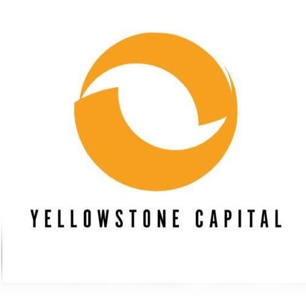 The lawsuit filed by the FTC against Yellowstone Capital et al has resulted in a settlement. The defendants agreed to pay $9,837,000 for the matter to be resolved.
The lawsuit filed by the FTC against Yellowstone Capital et al has resulted in a settlement. The defendants agreed to pay $9,837,000 for the matter to be resolved.
As part of it, the defendants did not admit or deny the allegations of the complaint. They also agreed to have the FTC monitor their compliance with the agreement for varying but long periods of time.
Aside from the cost, the FTC made its point in two areas, the requirement that the defendants comply with a specific system of customer disclosure and that they not debit or cause withdrawals to be made from any customer’s bank account without the customer’s express informed consent. On the former, they must (roughly speaking) disclose clearly and conspicuously the amount and timing of any fees, the specific amount a customer will receive at the time of funding, and the total amount customers will repay.
The announcement coincides with the Supreme Court decision that revoked the agency’s presumed authority to obtain restitution or disgorgement under Section 13(b), the basis that the FTC brought against Yellowstone Capital in August 2020.
The FTC signed and filed the agreement less than 24 hours before the SCOTUS decision.
President of Fora Financial on New Credit Facility
April 19, 2021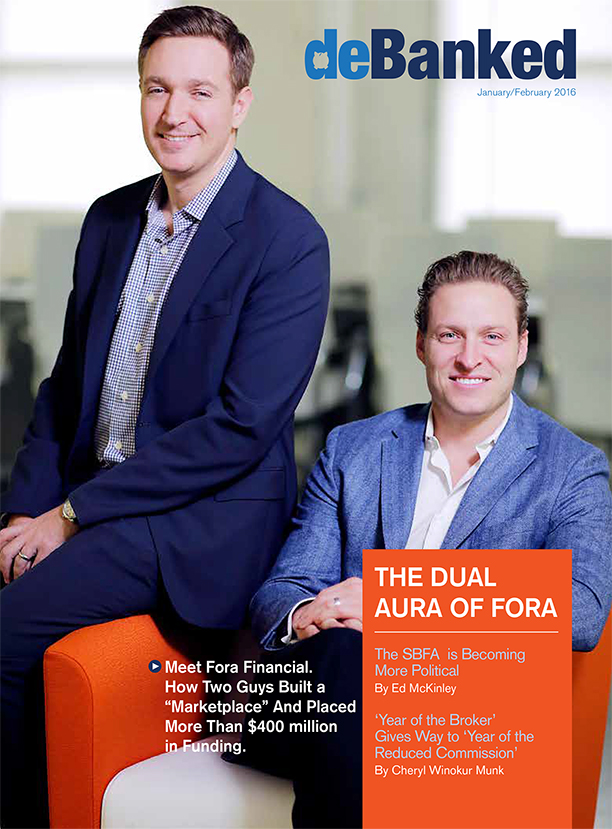 Andrew Gutman spent six years at Fora Financial, the hot non-bank financing company that deBanked profiled in 2016. Gutman worked his way up to CFO before taking over day-to-day operations as president in February 2020. In that role he began working with a team to build an aggressive growth plan for the coming year of 2020. A couple of weeks later, the world shut down.
Andrew Gutman spent six years at Fora Financial, the hot non-bank financing company that deBanked profiled in 2016. Gutman worked his way up to CFO before taking over day-to-day operations as president in February 2020. In that role he began working with a team to build an aggressive growth plan for the coming year of 2020. A couple of weeks later, the world shut down.
“Covid was really a kick in the pants,” Gutman said. “How we were doing at the time, our strategic plans were out the door, our growth plan shuttered.”
Flash forward to April 2021, Fora announced a new $100 million credit facility: Not just back on track but finally ready to pursue the plans from a year ago.
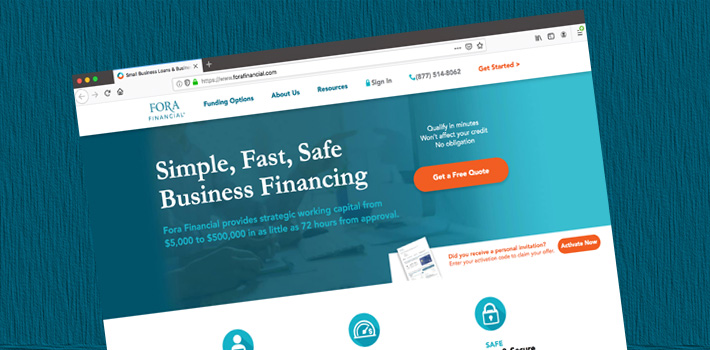
“The first months were rough; after the pandemic started, we lost our securitization facility,” Gutman said. “But we kept going, originating aggressively. By around June or July, we started to feel competitive again and rebounded; we started bringing people back– hiring back staff that was furloughed.”
Gutman said the firm was able to change the winds, and by December they were not far off from where they were in 2019. Now set up finally for the aggressive growth plan they had laid out before Covid, Gutman said that though the pandemic threw everything to the wind, Fora still had the capital to back up a good book of business when everything else failed.
Gregory J. Nowak, Partner at Troutman Pepper, Has Passed Away
April 13, 2021 Gregory J. Nowak, a partner at Troutman Pepper, passed away suddenly on April 11th at the age of 61.
Gregory J. Nowak, a partner at Troutman Pepper, passed away suddenly on April 11th at the age of 61.
The firm’s website introduced Nowak as a veteran attorney that was “sought after for advice on complex securities law matters, particularly on issues arising out of the Investment Company Act of 1940; the Investment Advisers Act of 1940; federal and state securities laws and regulations; broker dealer, FINRA, CFTC and NFA regulatory matters; and corporate and M&A transactions.”
That perfectly sums up the context in which I first encountered Nowak in 2017 when he spoke at a small event put on by the Alternative Finance Bar Association where I was the only non-lawyer in the entire audience. One might expect a presentation on the finer minutiae of securities law of which he gave, to be a mundane, easily forgotten experience for a financial journalist such as myself, but his energetic delivery and fluid command of the subject matter translated complex securities questions into a folksy debate wherein one could feel confident in resolving the Howey Test over the dinner table just as easily as they could in the courtroom.
In fact, I approached him afterwards to thank him on his presentation and even followed up later over email, asking if I might have the honor to list him as a recommended securities attorney on the deBanked website. That was four years ago and as fate would have it, he remained the only recommended attorney that deBanked formally listed under the securities category, despite my coming to know very many accomplished and competent attorneys in the same field of law.
Nowak was one of the earliest public voices in the world of merchant cash advance participations and syndication where the securities question was a consideration some weren’t even sure applied as the industry created new products and investing structures at a furious pace.

He spoke at deBanked’s first major conference in 2018 on the subject of “Syndication and Raising Capital,” and he continued to generate recognition of the need for securities legal support in the burgeoning industry.
He was a co-author of an article published with a colleague at Pepper Hamilton LLP (now Troutman Pepper) that he had given permission to be reprinted on deBanked in December 2018, titled MCA Participations and Securities Law: Recognizing and Managing a Looming Threat. It was read by more than 1,500 people on the deBanked website that first day alone.
Nowak was highly sought out on merchant cash advance issues. “Most judges want to see consistency of treatment and that includes your vocabulary,” Nowak said in an interview with deBanked in April 2019. “The word ‘loan’ should be banned from their email and Word files.”
Although our relationship was one of professional acquaintances, I often told those seeking advice about MCA syndication that they should “probably call Greg Nowak about that.”
In “Does Your Merchant Cash Advance Company Pass The Scrutiny Test?“, Nowak explained that funders that decide for business purposes to solicit money from investors, have to be careful not to run afoul of SEC rules. He said that he recommended funders treat these fundraising efforts as if they are issuing securities and follow the rules accordingly. Otherwise they risk being the subject of an enforcement action where the SEC alleges they are raising money using unregulated securities.
“You need to be very careful here because these rules are unforgiving. You can’t ignore them,” Nowak said.
California’s Business Loan & MCA Disclosure Law Is Nearing Finality
April 13, 2021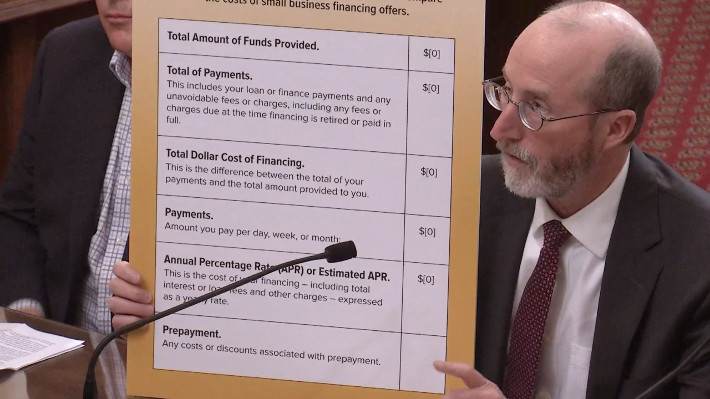 Nearly three years after California became the first state to pass a business loan and merchant cash advance disclosure law (SB 1235), the actual disclosure rules themselves are finally nearing completion. The public has until April 26th to submit any comments on the amended portions of the proposed rules.
Nearly three years after California became the first state to pass a business loan and merchant cash advance disclosure law (SB 1235), the actual disclosure rules themselves are finally nearing completion. The public has until April 26th to submit any comments on the amended portions of the proposed rules.
The 52-page document is the result of years of negotiations between various parties that all have a stake in its implementation. Among the finer details are the characteristics of the fonts permitted in the disclosures, what column a certain disclosure can be placed in, and the aspect ratio of the columns themselves.
But that’s the easy part. Here’s the hard part, according to a brief published in Manatt’s newsletter yesterday.
“The modified regulations continue to require use of the annual percentage rate (APR) metric, rather than annualized cost of capital (ACC), to disclose the total cost of financing as an annualized rate. This appears to be a final decision, which will make it difficult if not impossible for many commercial finance companies to comply given the significant challenges of calculating APR on products with substantial variance in the amounts and timing of payments or remittances.”
Manatt highlights other issues, including that all the necessary disclosures be provided “whenever a payment amount, rate, or price is quoted based on information provided by the proposed recipient of financing…”
This requirement, the firm says, is not even required under Federal Regulation Z for consumer loans.
“Many companies will not be able to comply with this requirement absent radical changes to their California application and underwriting procedures, as it is common today for companies to have preliminary discussions with applicants about potentially available financing terms before full underwriting has been completed.”
Manatt’s newsletter on the issue can be found here.
Any interested person may submit written comments regarding SB 1235’s modifications by written communication addressed as follows:
Commissioner of Financial Protection and Innovation
Attn: Sandra Sandoval, Regulations Coordinator
300 South Spring Street, 15th Floor
Los Angeles, CA 90013
Written comments may also be sent by electronic mail to regulations@dfpi.ca.gov with a copy to jesse.mattson@dfpi.ca.gov and charles.carriere@dfpi.ca.gov.
The last day to submit comments is April 26, 2021
Industry Ponders: Broker Blacklisting, or Certification?
April 5, 2021 It’s a concept that’s been thrown around the industry for years- swapped like business cards at meetups, conventions, and chatrooms. Shouldn’t there be a broker certification, database, or even blacklist for known bad actors?
It’s a concept that’s been thrown around the industry for years- swapped like business cards at meetups, conventions, and chatrooms. Shouldn’t there be a broker certification, database, or even blacklist for known bad actors?
As deBanked petitioned the question, the industry responded with its naturally diverse responses. The problem: bad actors can keep getting away with shenanigans. The solution? Well, no one size fits all approach could work in the alternative finance industry, but a certification source may do the trick.
CEO of FundFi, Efraim “Brian” G. Kandinov, recently brought up the idea of a “Datamerch for Brokers.” Like a DNC list, Kandinov said there has got to be a way to sort out the known bad actors, scam artists, and even the brokers that play the funding houses by training merchants.
“I think opposed to a blacklist: a list that notes bait and switches, where the merchant was coached by the broker,” Kandinov said. “This way can go around a lawsuit or any fear of that, and the funder is free to choose once reading others’ notes.”
Kandinov said that most of his “problem files” show signs of brokers coaching merchants to start protesting deals after the clawback period ends. Get paid, pass the smell test during a 30-60 day waiting period, and then tell the merchant to jump ship on the deal or argue to lower the payments.
“If they were not [suddenly going out of business], they were calling in like a schedule to lower their payments. No way it can be that uniform unless they were being coached. The broker comes off as the good guy that he played the funding houses,” Kandinov said. “I think harsh means are necessary to expel these guys from the industry.”
Other funding side members of the industry have voiced their support for some type of broker record database. Kristen Ferrara, Director of Underwriting at The LCF Group based in New York, said that LCF pays a high expense to select ISOs. A vetting platform could be a great resource.
 “I think it would be a good resource for funders,” Ferrara said. “We turn down about 50% of the ISOs who try to sign up with us. This resource could save funders millions of dollars in deals going bad from ISOs over-promising or committing fraud.”
“I think it would be a good resource for funders,” Ferrara said. “We turn down about 50% of the ISOs who try to sign up with us. This resource could save funders millions of dollars in deals going bad from ISOs over-promising or committing fraud.”
On the other side of the country in San Diego, CEO David Leibowitz from Mulligan Funding said he is all for a way to help funders vet brokers. Mulligan is lucky to work with a trusted brokers network and drops a client like a broken elevator at the first sign of fraud or unethical behavior, he said.
“We are extremely careful about which brokers we do business with. If we see any kind of practice that we think is unethical, we’ll cut a broker loose in a heartbeat,” Leibowitz said. “Is there value in the sort of thing you’re talking about? I think there probably is because I think it makes vetting brokers for [funders] a lot easier, and it also allows brokers to differentiate themselves against their competition by their ethics.”
Leibowitz is a proponent of ethics as an indicator of value and said a certification could help members of the public tell the difference between good and bad funders and let funders spot good ISOs and bad ISOs.
A worry for some is that whatever company, organization, or site that hosts a broker ledger could face lawsuits for liability, could accept payments to make bad reviews go away, list competitors to hurt them, or be outright ignored by an industry always hungry for deals.
But industry lawyers seem to agree that a broker certification or blacklist would ultimately benefit the industry if provided from the right source. Patrick Siegfried, the Deputy General Counsel at Rapid Finance, said that whatever agency would be rating brokers would need its own trusted reputation.
“To have a legitimate background or rating system, it needs to be done by an independent third-party that has its own credentials,” Siegfried said. “I think that’s a big reason you don’t see many third-party or private rating systems.”
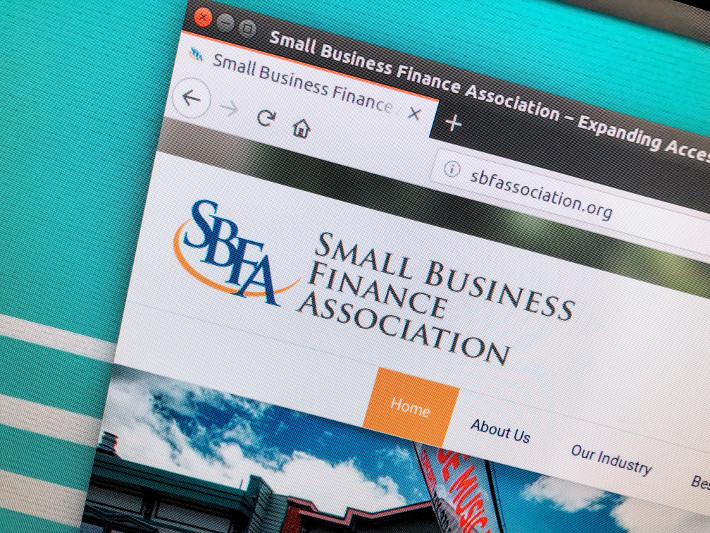 Siegfried said one option that ensures a true third-party point of view is a government agency taking care of a broker tracking system. Another option would be an industry coalition, but then it’s a question of cost- Who is paying to staff and maintain a complaint system?
Siegfried said one option that ensures a true third-party point of view is a government agency taking care of a broker tracking system. Another option would be an industry coalition, but then it’s a question of cost- Who is paying to staff and maintain a complaint system?
“At the end of the day, having a good industry regulator is a benefit for the industry,” Siegfried said. “It will allow a third-party, government entity to vet brokers in terms of licensing and then maintenance, looking into valid complaints.”
As conversations across the country point toward a licensing regime, Siegfried said it’s a sign the industry is maturing and that one day there will be a government agency to lodge complaints with and to actually vet brokers in the space.
Steve Denis from the Small Business Finance Association (SBFA) proposed a solution to the issue. He said that in the works right now is an SBFA-sponsored certification program.
“We started just looking at brokers and thinking about how to certify them,” Denis said. “We think that it’s the time, from the feedback we’ve gotten from regulators, that we launch a true industry-wide certification.”
In the coming months, brokers may be able to apply for certification when the program rolls out. Instead of a ‘blacklist,’ Denis said brokers could set themselves apart as trusted providers by going through a basic background test or industry knowledge checks.
“If you’re a broker and you can’t get certified, then there’s probably some issues,” He said. “So our hope is if you carry a certification, that’s sort of a message that you are a good broker.”
When it comes to government regulation, Denis said he is still cautious. While he 100% expects certification programs to crop up for state licenses, he thinks no government agency can achieve what an industry coalition can do.
Tune in Today Live: debanked.com/tv
March 31, 2021Update: The recording is here
deBanked will be streaming live today at approximately 12:15 with special guest Jennie Villano of NewCo Capital Group. She will be joined by host Sean Murray in the studio. This is not a Zoom or virtual discussion. There is no need to register. Anyone can tune in free at debanked.com/tv or debanked.tv































